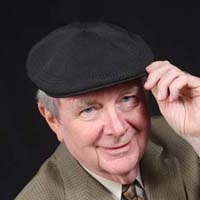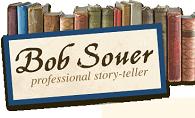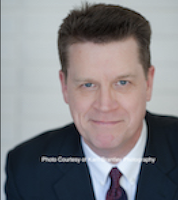| View previous topic :: View next topic |
| Author |
Message |
Dayo
Cinquecento

Joined: 10 Jan 2008
Posts: 544
Location: UK
|
 Posted: Mon Dec 07, 2015 5:36 am Post subject: Tracking levels - where do you sit? Posted: Mon Dec 07, 2015 5:36 am Post subject: Tracking levels - where do you sit? |
 |
|
Just curious what kind of levels folks are tracking to these days?
For myself, I'm getting much better and consistent recordings by tracking very conservatively. I try and average around -20 dBfs. Normal peaks around -10 and very occasionally -6dBfs, but never higher if I can help it.
The results are cleaner and very possibly less sibilant than tracking at a hotter level. I should note that I'm recording 24 bit. I'm guessing those levels would be on the low side for 16 bit.
What's your SOP?
_________________
Colin Day - UK Voiceover
www.thurstonday.co.uk |
|
| Back to top |
|
 |
vkuehn
DC

Joined: 24 Apr 2013
Posts: 688
Location: Vernon now calls Wisconsin home
|
 Posted: Mon Dec 07, 2015 8:35 am Post subject: Posted: Mon Dec 07, 2015 8:35 am Post subject: |
 |
|
My first reaction was that I record at 2 or 3 dB hotter than you do, but on second reading.... No... I record exactly in the same range you do. From your previous posts I know that your hardware is NOT SHABBY so your observation that recording at any higher level seems to result in more sibilants really has my attention.
If a newcomer had made that observation my reaction might have been: Maybe you are over-driving something in the analog section of your chain.
So guess what I will be watching for in future recordings for a while: When a sibilant stands out.... at what level was the offending phrase?
Back in the days of analog recording technology, we knew we needed to record closer to full scale because noise had a fixed level, and record too softly and you were neck deep in system noise. It's cheap entertainment these days to see how softly you can record something and still have an acceptable recording when you normalize the levels up to -3 or even a bit hotter. |
|
| Back to top |
|
 |
bobsouer
Frequent Flyer

Joined: 15 Jul 2006
Posts: 9883
Location: Pittsburgh, PA
|
 Posted: Mon Dec 07, 2015 8:40 am Post subject: Posted: Mon Dec 07, 2015 8:40 am Post subject: |
 |
|
Colin,
I'm right in the same range you are.
_________________
Be well,
Bob Souer (just think of lemons)
The second nicest guy in voiceover.
+1-724-613-2749
Source Connect, phone patch, pony express |
|
| Back to top |
|
 |
Eddie Eagle
M&M
Joined: 23 Apr 2008
Posts: 2393
|
 Posted: Mon Dec 07, 2015 8:53 am Post subject: Posted: Mon Dec 07, 2015 8:53 am Post subject: |
 |
|
| I try to stick around -9. You are on the mark for 24bit. You could record lower and then raise selections volume in post as a quick trick leaving room sound at original level too. |
|
| Back to top |
|
 |
Jen Gosnell
A Hundred Dozen

Joined: 14 Jan 2010
Posts: 1290
Location: Portland, OR
|
 Posted: Tue Dec 08, 2015 1:37 am Post subject: Posted: Tue Dec 08, 2015 1:37 am Post subject: |
 |
|
Hmm, I hit -6 more often than you guys do. Gonna try dialing it back a bit and see how it goes.
Thanks for bringing it up, Colin!
_________________
jen@jengosnell.com
https://www.jengosnell.com
Skype: jen.gosnell
971.258.2448 |
|
| Back to top |
|
 |
Dayo
Cinquecento

Joined: 10 Jan 2008
Posts: 544
Location: UK
|
 Posted: Tue Dec 08, 2015 6:51 am Post subject: Posted: Tue Dec 08, 2015 6:51 am Post subject: |
 |
|
| vkuehn wrote: |
If a newcomer had made that observation my reaction might have been: Maybe you are over-driving something in the analog section of your chain.
|
I've been doing this for 33 years and the longer I'm in the game, the more I realise how little I know.
Now, that was a tortuous sentence wasn't it?!
At this stage I'm not 100% certain that sibilance has been reduced as it's very hard to do a rigorous test, but my instinct says it has. Or, if I can put it another way: it's possible that what sibilance there is shows up less distorted or fried. I'm not entirely sure why, but I certainly wouldn't rule out a case of driving an analogue stage too hard going in.
_________________
Colin Day - UK Voiceover
www.thurstonday.co.uk |
|
| Back to top |
|
 |
Dayo
Cinquecento

Joined: 10 Jan 2008
Posts: 544
Location: UK
|
 Posted: Tue Dec 08, 2015 7:04 am Post subject: Posted: Tue Dec 08, 2015 7:04 am Post subject: |
 |
|
| Jen Gosnell wrote: | Hmm, I hit -6 more often than you guys do. Gonna try dialing it back a bit and see how it goes.
Thanks for bringing it up, Colin! |
Jen, it's important - nay vital - to keep your digital tracking levels moderate. The reasons are long and potentially complex, but, in a nutshell: most digital recording meters are not showing true peak levels - they are just not designed well enough. So, it's quite possible that your level can be peaking above 0dBfs (and distorting) but your meters can't tell you. Solution; get a meter that shows "true peaks".
The other main reason is that our analogue gear operates best (for the most part) in a sweet spot of line level (aka reference level) 0dBu to +4dBu (that's 4 to 5 on a trusty old  M). In theory, our gear has headroom of at least 16dB above this level before it begins to distort. So tracking with average digital level (dBfs) of -18dB (that's average - not peaks) keeps us right in the zone and will usually mean you are running your mic pre output at optimum level. M). In theory, our gear has headroom of at least 16dB above this level before it begins to distort. So tracking with average digital level (dBfs) of -18dB (that's average - not peaks) keeps us right in the zone and will usually mean you are running your mic pre output at optimum level.
This all assumes that you are recording at 24bit. Lastly, of course, these are recording levels, not delivery levels. That's another conversation.
_________________
Colin Day - UK Voiceover
www.thurstonday.co.uk |
|
| Back to top |
|
 |
Rob Ellis
M&M

Joined: 01 Aug 2006
Posts: 2385
Location: Detroit
|
 Posted: Tue Dec 08, 2015 4:07 pm Post subject: Posted: Tue Dec 08, 2015 4:07 pm Post subject: |
 |
|
Is it my imagination or does going from 16 to 24 bit bring about a noticeable improvement in sound quality?  |
|
| Back to top |
|
 |
vkuehn
DC

Joined: 24 Apr 2013
Posts: 688
Location: Vernon now calls Wisconsin home
|
 Posted: Tue Dec 08, 2015 4:53 pm Post subject: Posted: Tue Dec 08, 2015 4:53 pm Post subject: |
 |
|
I don't know how much is wishful, hopeful thinking, and how much is actual, but there are two areas I am confident that recording and editing in 24 bit makes for better recordings.
Noise level. If you make some low level recordings and you have to boost the gain to get them up to finished product, the inherent floor of the 16 bit process will sooner or later bite you.
The distortion of processing. The more processing you do where the editor has to transform waves because you are compressing, you are running eq or whatever else, 24 bit math is probably going to do less damage to wave forms than is 16 bit processing.
The same logic seems to work in photo editing. Even though your final print is going to be pretty low resolution, maintain high resolution during all the changing of contrast and colors and whatever else. Then at the end bring the dots-per-inch down at the last step to match your printer or whatever your vendor uses when you sent them out for printing on photopaper.
So whether the finished sound is actually better, or the finished photo print is actually better.... you can sleep well at night knowing you did your processing part at the hightest possible quality setting.
I suspect we all agree you don't take your file down to .mp3 between edit sessions, and I finally learned you don't save a photo down to .jpg until you are ready to print and e-mail it.
Now, just about the time I have you ready to sleep well tonight knowing we have found happiness in 24 bit sound..... have you pondered the concept that maybe processing and storing between processing steps in 32-bit files is even better than 24 bit? Oh... did I mess up your night's sleep??  |
|
| Back to top |
|
 |
Dayo
Cinquecento

Joined: 10 Jan 2008
Posts: 544
Location: UK
|
 Posted: Wed Dec 09, 2015 2:38 am Post subject: Posted: Wed Dec 09, 2015 2:38 am Post subject: |
 |
|
| vkuehn wrote: | I don't know how much is wishful, hopeful thinking, and how much is actual, but there are two areas I am confident that recording and editing in 24 bit makes for better recordings.
: |
Spot on. Absolutely 24 bit is better. You can record at much lower levels before digital noise becomes an issue with a large amount of headroom before digital and analogue distortion.
_________________
Colin Day - UK Voiceover
www.thurstonday.co.uk |
|
| Back to top |
|
 |
todd ellis
A Zillion

Joined: 02 Jan 2007
Posts: 10542
Location: little egypt
|
 Posted: Wed Dec 09, 2015 4:53 am Post subject: Posted: Wed Dec 09, 2015 4:53 am Post subject: |
 |
|
ok - since you bring it up - what about the difference between 24 bit & 32 bit?
_________________
"i know philip banks": todd ellis
who's/on/1st?
 |
|
| Back to top |
|
 |
Dayo
Cinquecento

Joined: 10 Jan 2008
Posts: 544
Location: UK
|
 Posted: Wed Dec 09, 2015 5:24 am Post subject: Posted: Wed Dec 09, 2015 5:24 am Post subject: |
 |
|
Ooooh! I'll leave that one to Vernon; I'm at the outer limits of my knowledge. But I do know that level matching between multiple plug-ins is not an issue in 32 bit.
_________________
Colin Day - UK Voiceover
www.thurstonday.co.uk |
|
| Back to top |
|
 |
heyguido
MMD

Joined: 31 Aug 2011
Posts: 2507
Location: RDU, the Geek Capitol of the South
|
 Posted: Wed Dec 09, 2015 6:52 am Post subject: Posted: Wed Dec 09, 2015 6:52 am Post subject: |
 |
|
I'll take that one...
It is never wrong to record at higher quality. 
And Dayo is absolutely right. Vern, too.
This is one case in which math does apply to VO.
_________________
Don Brookshire
"Wait.... They wanna PAY me for this?" |
|
| Back to top |
|
 |
vkuehn
DC

Joined: 24 Apr 2013
Posts: 688
Location: Vernon now calls Wisconsin home
|
 Posted: Wed Dec 09, 2015 7:33 am Post subject: Posted: Wed Dec 09, 2015 7:33 am Post subject: |
 |
|
| Dayo wrote: | | Ooooh! I'll leave that one to Vernon; I'm at the outer limits of my knowledge. But I do know that level matching between multiple plug-ins is not an issue in 32 bit. |
Vernon confesses that we are discussing topics that also exceed my "outer limits of knowledge". If I understand 32-bit audio data correctly, the one thing it does for us is allow obscene amounts of headroom if we run a stack of processes including EQ that results in some audio being calculated that exceeds "Full Scale". In 16 or 24 bit processing you end up with audio that has clipping. In 32 bit, those extra bits are used to maintain the integrity of the audio by increasing the headroom to the point that the audio can then be reduced through normalization or other processes that reduce the overall gain, and we end the day with audio that "took a trip to the wild side" and was able to return to the region of integrity with no observable damage from the train wreck.
Here is one last observation where I exceed the limits of my knowledge. I asked the question: If my software says it can RECORD in 32-bit, does that mean if the gain is set too high, I can avoid clipping during the recording process. A mere mortal human-being pointed out to me that the analog-to-digital processors will create a clipped 24-bit file which it hands off to your software which simply converts the crippled file to 32 bit for storage. So I assumed I had been to the mountain top and received knowledge from a shaman.
And then one day in a moment of insanity I picked up an expensive journal from the magazine rack and Barnes and Noble, one of those publications for the audiophile elites,,,, and learned that for big, big bucks you can actually purchase a converter that can generate digital audio at 32-bits and even higher bit rates, and can with fidelity sample at rates higher than 96k. Of course on the playback end only those with such ultra-expensive converter boxes can convert the digital file back to analog for play-back on speakers owned only by audiophile elites.
Why on the best day of my life would I need to do that? The shaman advised that my question was above his pay-grade.
So the one question I am left with that no one has been willing to touch with a lengthy selfie-stick: Does audio stored and processed at 32 bits get output with more integrity than the same audio stored and processed at 24 bits? (Other than avoiding being clipped during sloppy, overly-aggressive processing.) |
|
| Back to top |
|
 |
todd ellis
A Zillion

Joined: 02 Jan 2007
Posts: 10542
Location: little egypt
|
 Posted: Wed Dec 09, 2015 7:46 am Post subject: Posted: Wed Dec 09, 2015 7:46 am Post subject: |
 |
|
uh, thanks?
so really the same philosophy as beer & ammo --- more is better.
_________________
"i know philip banks": todd ellis
who's/on/1st?
 |
|
| Back to top |
|
 |
|



 M). In theory, our gear has headroom of at least 16dB above this level before it begins to distort. So tracking with average digital level (dBfs) of -18dB (that's average - not peaks) keeps us right in the zone and will usually mean you are running your mic pre output at optimum level.
M). In theory, our gear has headroom of at least 16dB above this level before it begins to distort. So tracking with average digital level (dBfs) of -18dB (that's average - not peaks) keeps us right in the zone and will usually mean you are running your mic pre output at optimum level.



